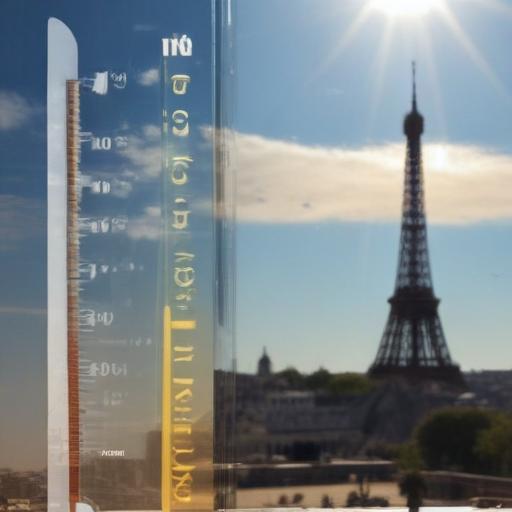Southern Europeans are preparing for an intense heatwave this weekend as climate change continues to raise temperatures across the continent significantly. Scientists have long warned that fossil fuel consumption is driving the planet’s warming trend, leading to increasingly severe and frequent summer heatwaves in Europe.
Italy is notably affected, with 17 cities, including Milan and Palermo, under red alert for soaring temperatures, with highs reaching 39 degrees Celsius (102 degrees Fahrenheit). Tourists flocked to Rome’s public fountains to find relief, while in Venice, the heat amidst wedding festivities for Amazon founder Jeff Bezos drew mixed reactions from attendees and protesters alike. Alejandra Echeverria, a tourist from Mexico, described the stifling conditions, saying, “There is no wind, a lot of humidity, we are sweating, and I’m suffocating at night.”
Weather experts forecast even higher temperatures for Sunday, with cities like Marseille in France approaching 40C. Local authorities in Marseille have responded by making public swimming pools free to help residents escape the heat. Meanwhile, Portugal is bracing for extreme conditions, with 42C expected in Lisbon, and similar warnings are in place across Spain, where temperatures could surpass 40C, including a potential record of 46C in the Huelva region.
In a bid to mitigate risks, Sicilian authorities have banned outdoor work during peak heat hours, with other regions in Italy advocating for similar measures. In France, schools in Tours will close during the afternoons on Monday and Tuesday, while other cities are extending accessibility to air-conditioned venues and parks to help residents cope.
The heatwave underscores recent climatic patterns, with the past three years marking the hottest on record in Spain. This year’s March was also the hottest ever recorded in Europe, according to the EU’s Copernicus climate monitor. As extreme weather events such as this heatwave become more common due to climate change, scientists continue to caution about the long-term impacts of rising global temperatures.
Despite the challenging conditions, people are finding ways to adapt. Residents and visitors in cities like Nice are seeking comfort in shaded parks and air-conditioned spaces. For athletes participating in a triathlon, organizers have prepared emergency plans to ensure safety during the event, reflecting a community-wide effort to navigate these extremes together.
The situation presents both challenges and opportunities for resilience, highlighting the importance of public awareness and preparation in the face of climate change. While the heatwave may be uncomfortable, it also drives conversations about environmental action and adaptation strategies for the future.
